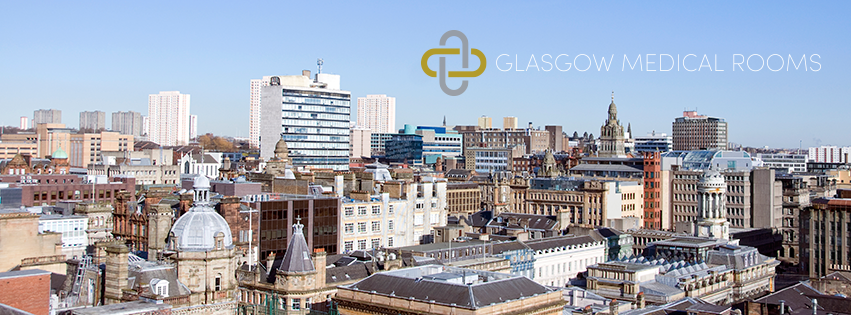Why are private businesses within the NHS increasing?
The healthcare landscape is changing in the UK, with more private businesses being integrated into the NHS system. Could this shift benefit us as a society long-term?
5 minute readThe words “private” and “NHS” are normally perceived as being at opposite ends of healthcare in the UK. “Private healthcare” is often viewed as a threat to our much loved NHS, conjuring up images of fat-cat CEOs, greedy shareholders and profits taking priority over patient care.
But what is the reality about private business and the NHS? Have parts of the NHS always been private? Is private business in the NHS increasing? And what are the benefits and pitfalls of private business in the NHS?
What role do private businesses play in the NHS?
Private companies have always played a role in the NHS, and private and publicly funded healthcare have ties going back to the birth of the NHS in 1948. Primary healthcare providers such as opticians, dentists, GPs, and pharmacies have been run by private providers for many years.
In addition, many clinical services in hospitals operate in partnership with the private sector, as well as non-clinical facilities such as car parks, facility management and cleaning.
Private providers of NHS services in the UK currently include:
Primary care — including GPs, opticians, dentists, and pharmacists
Hospital services — Private hospital groups such as Spire Healthcare, Circle Health Group, and Ramsey Healthcare UK are increasingly being used by the NHS to carry out elective (non-urgent) procedures and routine surgery in a bid to meet NHS targets
Ambulance services — In 2019 the Care Quality Commission (CQC) reported that ambulance services were increasingly relying on private providers due to a lack of capacity. In 2018/9, more than £92 million was spent on private ambulances and taxis.
Mental health services —According to healthcare consulting firm, Candesic, around £1.8 billion was spent by the NHS on mental healthcare in the private sector in 2018. About 25% of NHS mental healthcare beds in England were provided by the private sector, and 98% of private sector earnings came from the NHS.
Diagnostic services — such as blood tests, MRIs, CT scans and X-rays
Nonclinical services — including car parking, cleaning, catering, and building management
Are private businesses in the NHS increasing?
While certain services in the NHS have always been run by private companies, the number of private businesses in the NHS has increased over the years.
In 2012, the Health and Social Care Act increased NHS trusts' ability to award contracts to private providers. As a result, the number of private contractors expanded to include more GP surgeries, out-of-hours services, urgent care and minor injury units, diagnostic services, maternity care, elective surgery, community nursing and physiotherapy, ambulance services, and prison health.
How much does the NHS spend on private sector services?
According to UK health charity, The King's Fund, it is difficult to pinpoint exactly how much the NHS spends on private health companies as detailed information on individual contracts is not available.
In 2019, the Department of Health and Social Care (DHSC) claimed that spending on independent sector providers accounted for just over 7% of its budget, however, this figure has been disputed and the actual figure is around 26% according to Independent Think Tank Centre for Health and Public Interest (CHPI).
Are there any benefits to private business in the NHS?
In short, the NHS needs the private sector to survive. Primary care services such as optometry, dentistry and community pharmacies subsidise the NHS and would likely disappear without private funding.
NHS optometry services, for example, rely on retail profits to pay for infrastructure such as premises, equipment, training, and support. Sight tests provided under the national contract cost providers more than £50 to perform. The amount they can reclaim from the government is currently just over £24 and has not significantly increased for decades, creating an annual subsidy from the private sector to the NHS of around £260m.
What are drawbacks of private businesses in the NHS?
The British Medical Association (BMA) have long since voiced their opposition to the use of private companies in the NHS, but have acknowledged that using private providers has become necessary to tackle lengthy NHS waiting lists, largely due to the COVID-19 pandemic.
The reasons for the BMA’s opposition to the increasing use of private sector providers include:
Private sector healthcare providers influencing NHS decision-making
The BMA are concerned that private providers may become too heavily involved in decision-making, shifting the focus from patient care needs to profit-making and shareholders.
Long-term sustainability
The BMA also questions the long-term sustainability of outsourcing care to private providers. As increasing number of people pay for private healthcare to skip waiting lists, the capacity for outsourcing is likely to reduce.
As most operations performed privately are non-urgent, more straightforward procedures, the BMA is asking for clarification on how this will impact NHS funding and sustainability if profitable procedures are outsourced.
Staffing implications
Another issue of concern is that more medical practitioners may choose to take on additional private-sector work, potentially limiting their availability to work in the NHS. In addition, private sector providers are not obliged to provide training like the NHS, creating a potential “brain drain” of NHS-trained staff moving into the private sector.
Are we heading towards full privatisation of the NHS?
While the government continues to deny that the NHS is slowly being privatised, campaigners against privatisation believe that the increase in contracts being awarded to private companies is a move towards full privatisation of healthcare in the UK. But is this really the case?
Currently, the NHS remains true to its pledge to provide free at the point of use healthcare to all. While some services such as car parking, prescription charges and dentistry incur a cost, overall, healthcare remains free in the UK, albeit with lengthy waiting times.
According to the King’s Fund:
“Provided that patients receive care that is timely and free at the point of use, our view is that the provider of a service is less important than the quality and efficiency of the care they deliver. The NHS can also benefit from partnerships and joint ventures with the private sector to deliver some clinical and non-clinical services.”
Summary
With the increasing use of private businesses to provide a range of services in the NHS, many are understandably concerned that the government plans to fully privatise the NHS by stealth.
However, the private sector provides many benefits to the NHS and subsidises many NHS services as well as helping to reduce waiting times. As the King’s Fund pointed out, maybe the focus should be on the quality of the care provided rather than who provides it. One thing that is clear is that the relationship between private and NHS healthcare in the UK looks set to continue for the foreseeable future.







